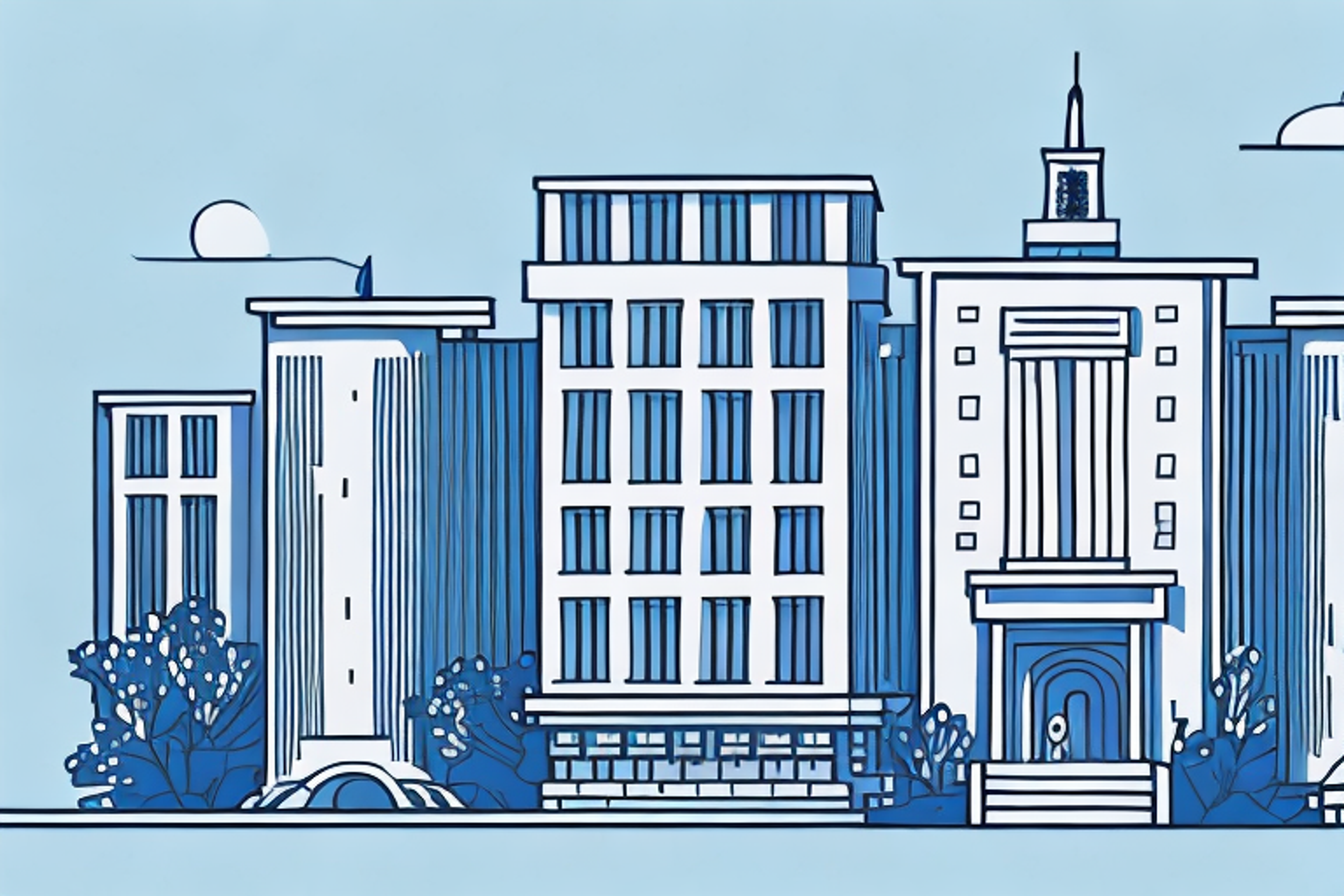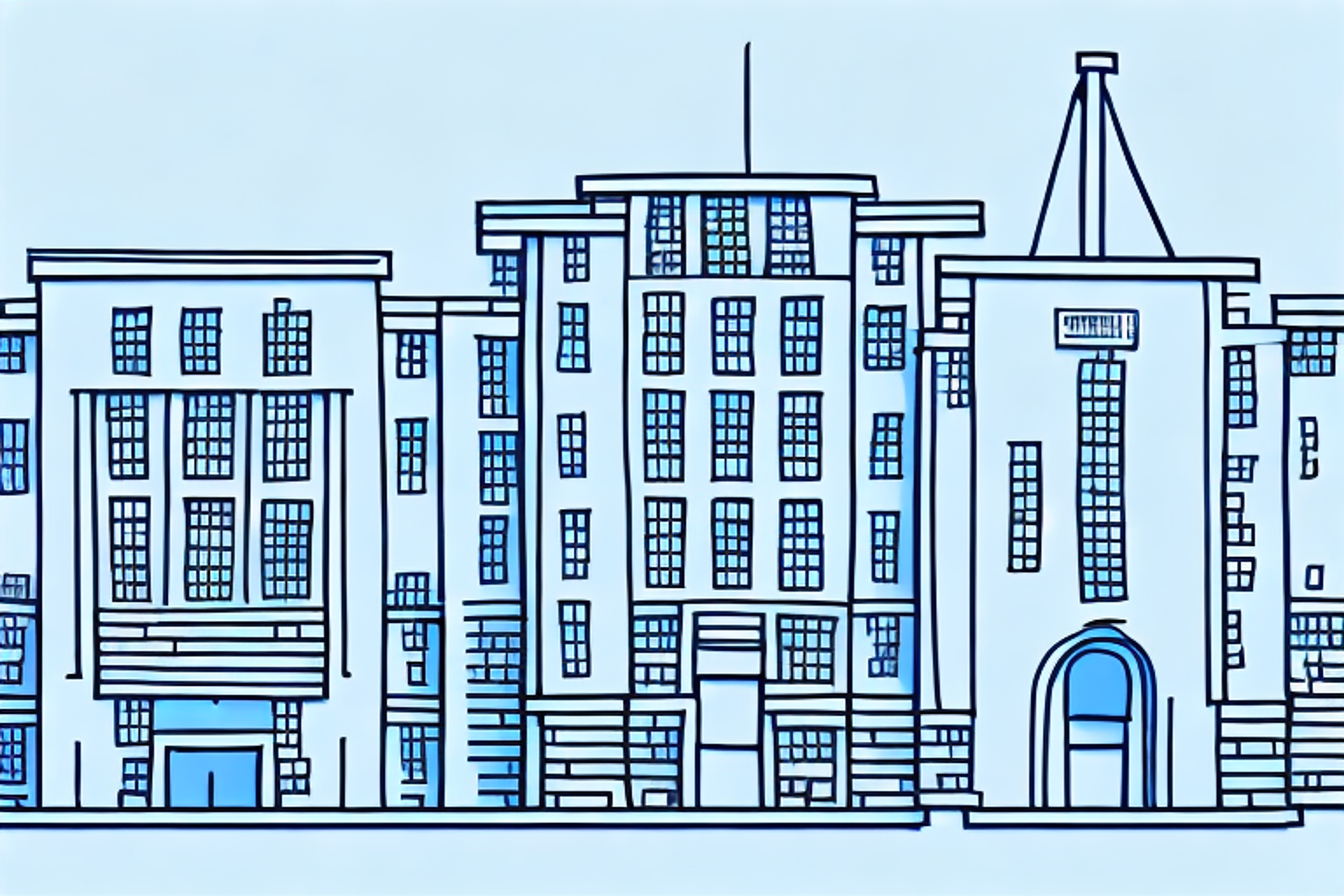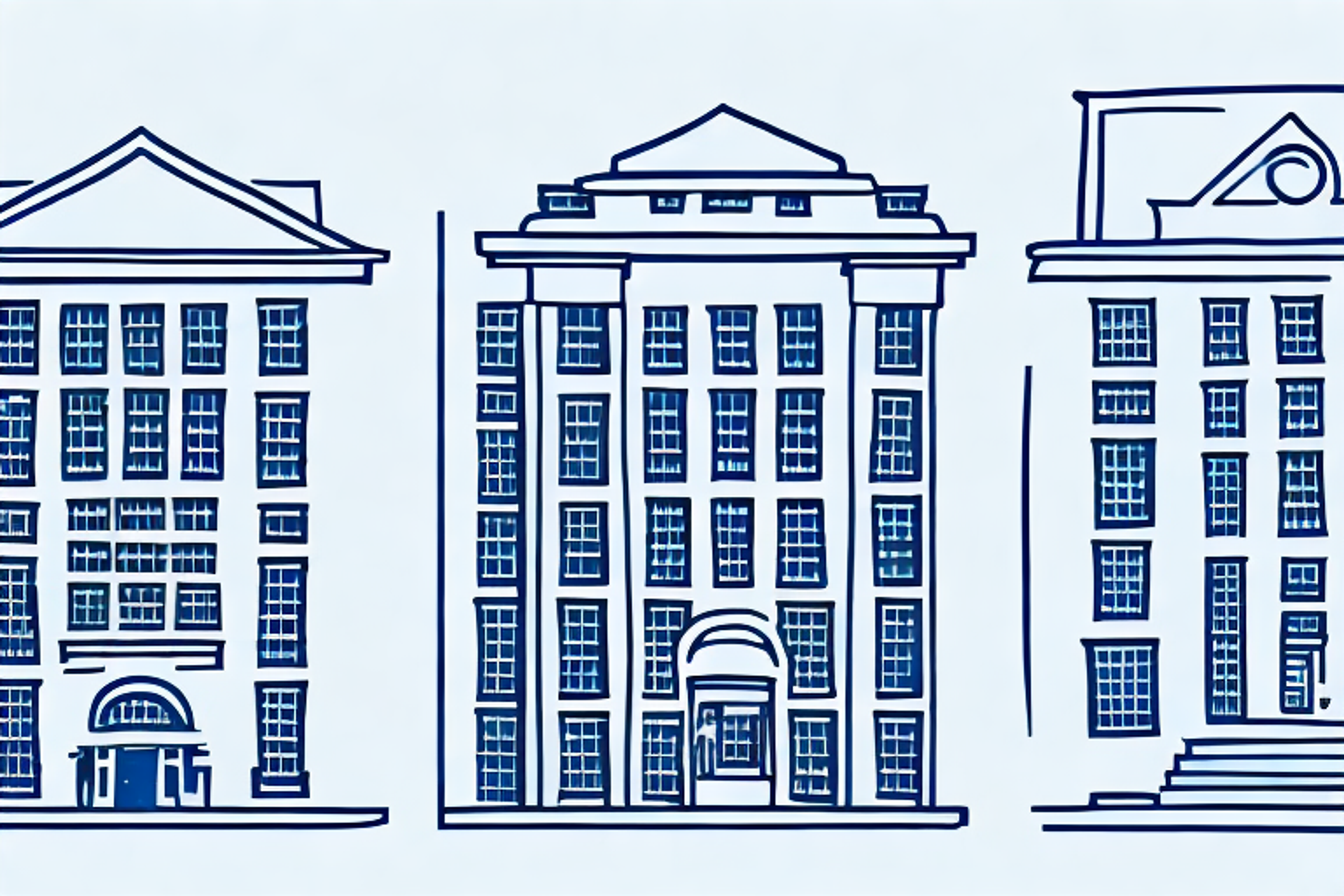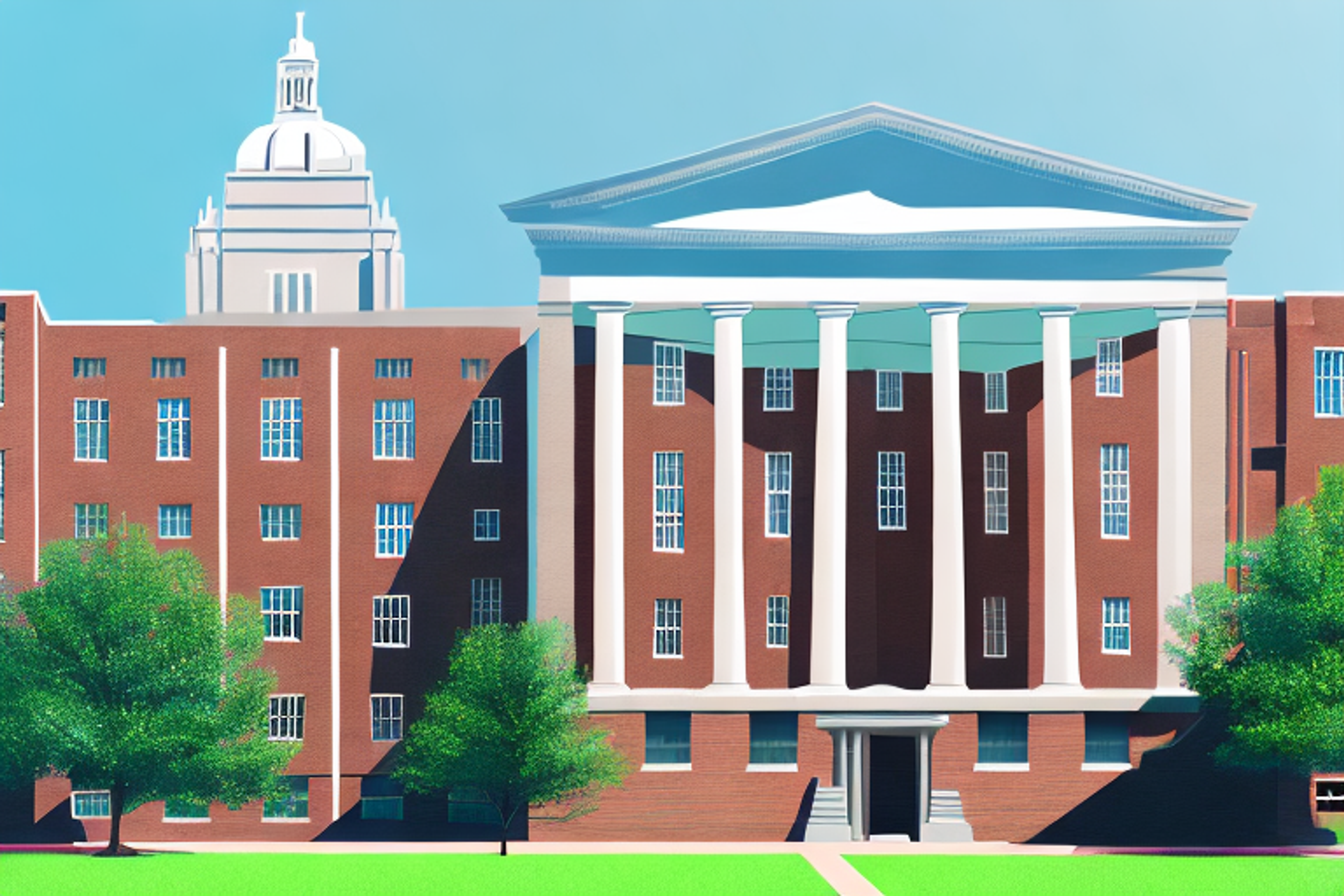Yale Law School Vs. University of Michigan--Ann Arbor Law School: An In-Depth Comparison
Are you considering attending law school but can't decide between Yale and University of Michigan--Ann Arbor? Our in-depth comparison article breaks down the differences in academics, campus culture, and career opportunities to help you make an informed decision.
Posted March 6, 2025

Table of Contents
Are you considering getting a law degree from Yale Law School or the University of Michigan--Ann Arbor Law School? If so, you might be wondering how these two law schools differ and which one is best for you. In this in-depth comparison, we will take a look at the history, location, curriculum, faculty, student body, career prospects, tuition fees, campus life, rankings, and alumni network of Yale and Michigan Law Schools. So, let's dive in and see what each of these law schools has to offer!
Introduction to Yale Law School and University of Michigan--Ann Arbor Law School
Yale Law School and University of Michigan--Ann Arbor Law School are two of the most prestigious law schools in the United States. Yale law school is located in New Haven, Connecticut and was founded in 1824. In contrast, the University of Michigan--Ann Arbor Law School is located in Ann Arbor, Michigan, and was founded in 1859. Both law schools offer Juris Doctor (JD) degrees, as well as graduate programs and joint degree programs in law and other disciplines.
Yale Law School is known for its small class sizes and highly selective admissions process, with an acceptance rate of only 6.9%. The law school has produced many notable alumni, including former U.S. Presidents Bill Clinton and Gerald Ford, as well as Supreme Court Justices Sonia Sotomayor and Samuel Alito. On the other hand, the University of Michigan--Ann Arbor Law School is known for its strong emphasis on interdisciplinary studies and its commitment to public service. The law school has a robust clinical program, which allows students to gain practical experience by working on real cases under the supervision of experienced attorneys.
History and Background of Yale Law School
Yale Law School has a rich history that dates back almost 200 years. It was the first law school in the United States to have a dedicated building, and it has contributed significantly to the development of American law and legal education. Yale Law School has produced many distinguished alumni, including former US presidents, Supreme Court justices, and prominent legal scholars and practitioners.
One of the unique features of Yale Law School is its emphasis on public interest law. The school has a strong commitment to social justice and encourages its students to pursue careers in public service. Yale Law School offers a number of clinics and programs that allow students to gain practical experience in areas such as human rights, environmental law, and criminal justice reform. In addition, the school has a robust public interest fellowship program that provides financial support to students who want to work in the public sector after graduation.
History and Background of University of Michigan--Ann Arbor Law School
The University of Michigan--Ann Arbor Law School has a slightly shorter history than Yale Law School, but it is no less prestigious. It has been consistently ranked among the top 10 public law schools in the United States and has produced many successful lawyers and public servants. The law school prides itself on its commitment to interdisciplinary research and teaching, as well as its vibrant and diverse community of faculty and students.
The law school was founded in 1859, making it one of the oldest law schools in the country. It was initially established as a department within the University of Michigan, but it quickly grew in size and reputation, eventually becoming its own independent school. Today, it is one of the most respected law schools in the world, with a long history of producing influential legal scholars and practitioners.
In addition to its academic programs, the University of Michigan--Ann Arbor Law School is also known for its commitment to public service. Many of its graduates go on to work in government, non-profit organizations, and other public interest fields. The law school also offers a number of clinics and pro bono programs, giving students the opportunity to gain practical experience while serving their communities.
Location, Campus, and Facilities Comparison between Yale and Michigan Law Schools
Yale Law School and University of Michigan--Ann Arbor Law School are located in very different parts of the country, which might be a significant factor to consider when choosing between them. Yale Law School is located in the bustling college town of New Haven, Connecticut, which is considered one of the most livable small cities in America. The law school is housed in a beautiful Gothic-style building that is part of the larger Yale University campus. The University of Michigan--Ann Arbor Law School is housed in a modern building on the University of Michigan campus, in the vibrant city of Ann Arbor, Michigan. The campus offers a range of amenities, including libraries, research centers, and dining options, and is known for its beautiful architecture and expansive green spaces.
Aside from location and campus, both Yale and Michigan Law Schools offer exceptional facilities to their students. Yale Law School has a state-of-the-art library that houses over one million volumes, including rare books and manuscripts. The library also offers access to online legal databases and research tools. Michigan Law School also has an extensive library system, with over one million volumes and access to numerous online resources. In addition, Michigan Law School has a legal clinic that provides students with hands-on experience in representing clients under the supervision of experienced attorneys. Yale Law School also offers a legal clinic program, where students can work on real cases and gain practical legal skills.
Faculty Comparison: Who are the Professors Teaching at Yale and Michigan Law Schools?
Both Yale Law School and University of Michigan--Ann Arbor Law School have outstanding faculties of legal scholars and practitioners. Yale Law School's faculty includes some of the most respected and influential legal thinkers and educators in the world, as well as practitioners who have had a significant impact on the legal profession. The faculty at the University of Michigan--Ann Arbor Law School is also highly regarded and diverse, with many prizes winning faculty members who are leaders in their respective fields.
Curriculum Comparison: What Courses Do Yale and Michigan Law Schools Offer?
Yale Law School and University of Michigan--Ann Arbor Law School offer a diverse range of courses and programs that cater to the varied interests and career goals of law students. Both law schools offer foundational courses in legal theory, reasoning, and practice, as well as specialized courses in fields such as environmental law, intellectual property law, human rights, international law, and many more. Yale Law School is known for its small class sizes and flexible academic program, which allows students to tailor their courses to their interests and career goals. The University of Michigan--Ann Arbor Law School has a similarly diverse curriculum, with a particular emphasis on interdisciplinary research and teaching.
Student Body: Demographics, Size, Diversity, and Admission Standards at Yale Vs. Michigan Law Schools
The student body at Yale Law School and University of Michigan--Ann Arbor Law School is diverse and accomplished, with highly qualified applicants from all around the world. Yale Law School has a slightly smaller class size, with around 200 students admitted each year. The University of Michigan--Ann Arbor Law School has a somewhat larger class size, with around 300 students admitted each year. Both law schools have a highly selective admissions process, with acceptance rates of around 7-8%.
Career Prospects after Graduating from Yale and Michigan Law Schools
Both Yale Law School and University of Michigan--Ann Arbor Law School offer excellent career prospects for their graduates. Graduates from both law schools go on to work in a range of fields, including law firms, public interest organizations, government agencies, and academia. Graduates from Yale Law School are particularly well-represented in high-level positions in government, law, and business, while graduates from the University of Michigan--Ann Arbor Law School are known for their versatility and adaptability in a range of legal and professional contexts.
Tuition Fees, Financial Aid, Scholarships Comparison between Yale Vs. Michigan Law Schools
The cost of attending law school can be a significant financial burden, and it is essential to consider the tuition fees, financial aid, and scholarship opportunities available when comparing Yale and Michigan Law Schools. Yale Law School is known for its generous financial aid packages, which cover tuition and living expenses for many students. The University of Michigan--Ann Arbor Law School also offers competitive financial aid packages and scholarships, but the cost of living in Ann Arbor is generally higher than the cost of living in New Haven.
Campus Life: Extracurricular Activities, Clubs, Sports at Yale Vs. Michigan Law Schools
Law school is not just about studying and attending classes - it is also an opportunity to participate in a range of extracurricular activities, clubs, and sports. Both Yale Law School and University of Michigan--Ann Arbor Law School offer a variety of clubs, organizations, and events that cater to the diverse interests and backgrounds of their students. Yale Law School, for example, has a robust slate of student-run law journals, moot court teams, and pro bono organizations. The University of Michigan--Ann Arbor Law School has a similarly active student body, with clubs and organizations focusing on everything from intellectual property law to animal law.
Rankings and Reputation Comparison: How do Yale and Michigan Law Schools Rank in the US News & World Report Rankings?
The US News & World Report rankings are one of the most widely cited measures of law school quality and reputation. In the latest rankings, Yale Law School was ranked #1, while the University of Michigan--Ann Arbor Law School was ranked #7 among public law schools in the United States. Both law schools have a long-standing reputation for excellence in legal education and scholarship, and their graduates are highly sought after by employers and organizations worldwide.
Alumni Network: How Strong is the Alumni Network of Yale versus Michigan Law Schools?
The alumni network of Yale Law School and University of Michigan--Ann Arbor Law School is extensive, with graduates working in a range of fields and industries around the world. Both law schools have active alumni associations that offer networking opportunities, mentorship programs, and resources for job hunting and career development. Yale Law School's alumni network is particularly well-developed, with graduates holding influential positions in law, government, business, and academia worldwide.
Conclusion: Which One is Better for You? A Final Verdict on Comparing Yale Vs. Michigan Ann Arbor Law School
So, which law school is better for you - Yale Law School or the University of Michigan--Ann Arbor Law School? The answer, of course, depends on your individual preferences, goals, and circumstances. Both law schools offer outstanding academic programs, excellent faculty, diverse student bodies, and exciting opportunities for career development and personal growth. Ultimately, the best way to decide between these two fantastic law schools is to visit their campuses, talk to students and faculty members, and explore the resources and opportunities they offer. We hope this in-depth comparison has given you a better understanding of what each of these law schools has to offer and helped you make an informed decision about your legal education.











